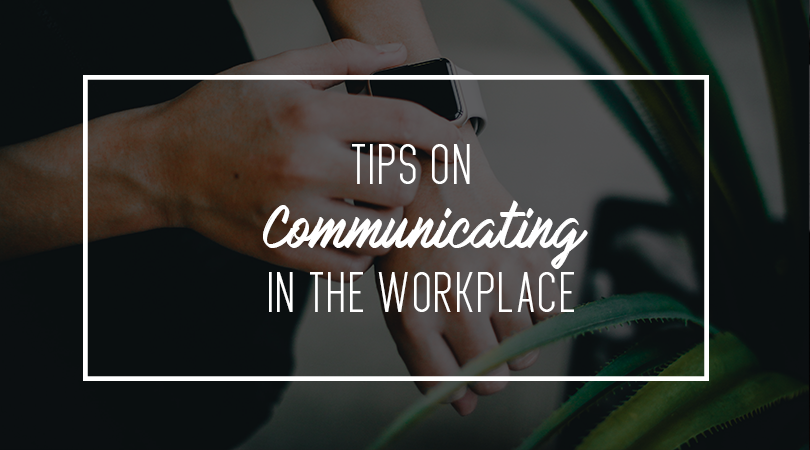Tips and Tricks For Effective Communication in the Workplace
Communication. Oh, communication. This is a word that is tossed around so much – especially in the workplace. Well, for you EAs out there, you know how valuable effective communication in the workplace can be. Too often, poor communication gets in the way of productivity, task management and sometimes even establishing an effective partnership with your executive. Do you ever find yourself scratching your head, wondering how a ‘miscommunication’ incident could have happened? Or, do you ever feel like half the time, conflict is blamed on miscommunication?
If you answered yes, then you are in luck! We have some easy fixes for that. Let’s look at our must-have tips and tricks to create effective communication in the workplace.
Why Are Effective Communication Skills Important?
Before we get into tips to effectively communicate at work, it’s important to understand why effective communication skills are so dang important. Did you know that effective communication skills help you….
- Be more efficient
- Build and advance your career
- Increase productivity which can directly affect revenue (your executive will LOVE that)
- Build trust and respect with not just your executive, but all stakeholders in your organization
So, now that we understand why effective communication is crucial, let’s look at how we can be more effective communicators.
Be Specific, Be Concise
Have you ever felt like you are listening to someone go on…and on…and on… Almost to the point that you lost track of the conversation (cue the daydreaming)? It’s so important to give your audience what they need, in a crisp, concise, yet specific, order. Keep your statements short and to the point (without being rude of course.)
Think about the context of what you are communicating, and what platform through which to communicate. For example, let’s say your executive needs to communicate that your company is acquiring another company. As you can imagine, this should probably not be stated via social media. This would be better served in an all-company meeting, verbally.
This has probably come up around the question of when should you use email vs. text message vs. chat. Determining the right combination of communication channels is a must for both you and your executive’s sake. Trust us, it just makes your life easier. Sometimes, the best way to manage this is to ASK. Don’t be afraid to ask your executive (or anyone for that matter) what the preferred method of communication is pending the type of message or situation – this will save you a ton of time!
Effective Communication: It’s More Than Talking
When you think about hosting a party, you strive to be a gracious host. Well, part of that is by being a good listener. Nonverbal communication, including listening, is just as important, if not MORE important, than verbal in effective communication in the workplace. Nonverbal communication cues to be aware of include:
- Make eye contact: It may make some people feel uncomfortable, but it shows you care and you are paying attention to what they are saying.
- Tone does matter: You know it does.
- Be present: Don’t just stare off into space. People can see that.
- Be mindful of culture: This may seem a little strange, but nonverbal cues may be different pending on culture – so don’t forget about that! It’s a sign of respect and will only help you in the end.
Remember the 7 C’s of Communication
This tip pretty much summarizes the entire list of tips – the 7 C’s of effective communication. Did you know, these can be used both verbally and written? Better keep track of these….
- Completeness: Communicate the facts in full.
- Conciseness: We discussed this before, get to the point.
- Consideration: Remember, think about how the other person feels – step into his/her shoes before you communicate.
- Clarity: Be sure to be clear and make it simple – you don’t need to use fancy words to get your point across.
- Concreteness: Avoid being fuzzy and general, give particular and clear statements – it saves everyone time (and money!).
- Courtesy: This is a natural for you as an EA– be polite and respectful. Don’t be a bully or queen bee.
- Correctness: Be sure that you are exact, well-timed and accurate in what you are communicating
Being an effective communicator will not only make your job easier, but it can lead to a more productive work experience and help you build relationships, some that could last way longer than you could imagine! Don’t be afraid to practice these tips, or for a deeper look at how to have effective communication in the workplace, don’t miss our Next-Level Communication Skills & Strategies Session at our ELS Forums. You can register for it at any one of our events, here.
Other resources you may be interested in:



